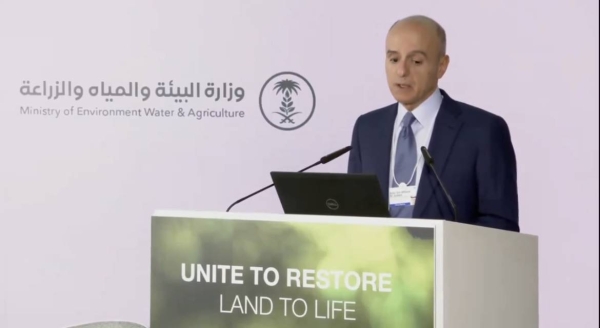
If this is the most important summit of our lifetime at COP26 in Glasgow, the omens are far from positive. Recent global conferences have largely been lame, notable for arguments and vacuous verbiage rather than critical progress. Multilateralism has been on life support.
This time, the UK — the host — is also not in great diplomatic shape. The label “Global Britain” is wearing very thin. Let us hope it proves the doubters wrong.
Getting into a spat with France in the run-up to Glasgow looks decidedly more petty than global. The fate of a trawler and its cargo of two tons of scallops was the trigger for a breakdown in the Anglo-French entente cordiale. Paris has threatened to block ports and cut off power to Jersey because it claims Britain has not issued enough licenses to French fishing boats. The UK, no stranger in recent times to ignoring signed international agreements, accused the French of unjustified behavior and of breaking the EU-UK Trade and Cooperation Agreement.
Neither Boris Johnson nor Emmanuel Macron are strangers to piling in to make a huge drama. At the weekend’s G20 summit in Rome, the two leaders were all fist bumps for the cameras, but at other points it appeared like daggers were drawn. The theatrics are all for domestic consumption, with Macron focused on the 2022 French presidential election and Johnson on courting his Brexit-voting base.
All these shenanigans must be cast aside to prevent them casting a pall over the climate summit. The green shoots of global cooperation must take root after the everyone-for-themselves years of the Trump administration. The COVID-19-enforced delay of COP26 by a year means that President Joe Biden is at the helm in the US rather than the climate skeptic Trump. That said, did Biden really need an 85-car motorcade in Rome?
Trump was openly dismissive of action on climate change, especially if it impinged on the US economy. If world leaders need a reminder of the true costs of climate change, they would not have to walk far to find the flooded homes of southern Scotland as a reminder of the cost of inaction. Extreme weather events have started to become the new normal.
For the sake of the planet, one must hope the histrionics and primal populist political instincts are left at home. The 120 world leaders gathering for the first two days must ignore opinion polls, focus groups and domestic critics to negotiate a serious strategy to curb global warming. Simply put, we are running out of time to keep warming below 1.5 degrees Celsius above pre-industrial levels. Currently, the figure lurks at 1.1 percent.
On the plus side, the debate has shifted. The climate change deniers occupy the same derided space as anti-vaxxers and flat-earthers. The science may not always be clear, but it now comes down to a question of the extent of the damage done, not if it has happened, and to the speed of the forthcoming destruction.
Vital scientific advances give hope. Steel production could be achieved with clean “green” hydrogen, not coal. Electric cars are now affordable and effective, even if — as the COP26 car park shows — most world leaders and their ministers do not yet drive them. Carbon capture is moving forward, though not at a pace that will be a game-changer.
Behavioral change among the public has been too slow. But the pandemic has highlighted how many of us can now work from home. Driving to and from work is a huge source of emissions in richer states. Moreover, the pandemic has shown that the global public can, in the face of a crisis, stomach a considerable amount of emergency government legislation to alter our behavior if required.
Yet the doubters have plenty to shout about. The G20 countries, collectively responsible for about 80 percent of global greenhouse gas emissions, did agree at the Rome summit to achieve carbon neutrality by 2050, or rather about 2050. They also agreed to phase out the public financing of coal-fired power generation, but only “as soon as possible.”
Financing is vital. Poorer states need investment. The brightest and windiest places on the planet should get the investment. The G20 could not agree on a $100 billion annual pot for this. Cynics point out that, so far, according to the International Monetary Fund, countries have committed $16 trillion to the post-pandemic recovery — so how come the financing to save the planet is so hard to come by?
The UK’s reputation is on trial at COP26, even for the logistics of organizing one of the largest summits in history. It is the culmination of endless negotiations and preliminaries. London’s diplomats will be overstretched trying to carve out some concrete strategy and actions. In the forefront as ever, ducking the French brickbats, will be Johnson.
Glasgow must build on the achievements of the 2015 Paris summit. COP26 must provide the rulebook to make the Paris Agreement operational. It cannot be a rulebook that can be broken at will. It cannot be made up of promises and pledges but no binding legal commitments. The key will be what nations act on between now and 2030. Committing just to 2050 targets is fine, but is largely a no-cost can-kicking exercise to embellish political reputations.
For too long, Johnson has tried to be the greatest showman, not the greatest statesman. Could this be the prime minister’s moment to undergo such a metamorphosis? Could he revitalize Britain’s global standing? To do that, he must find an inner seriousness and steel, combined with constructive and creative cajoling and nudging. He will have to match his words with deeds to ensure the UK is in the advanced guard of those trying to save the planet by leading by example. There will be no room for half measures or fudges.












